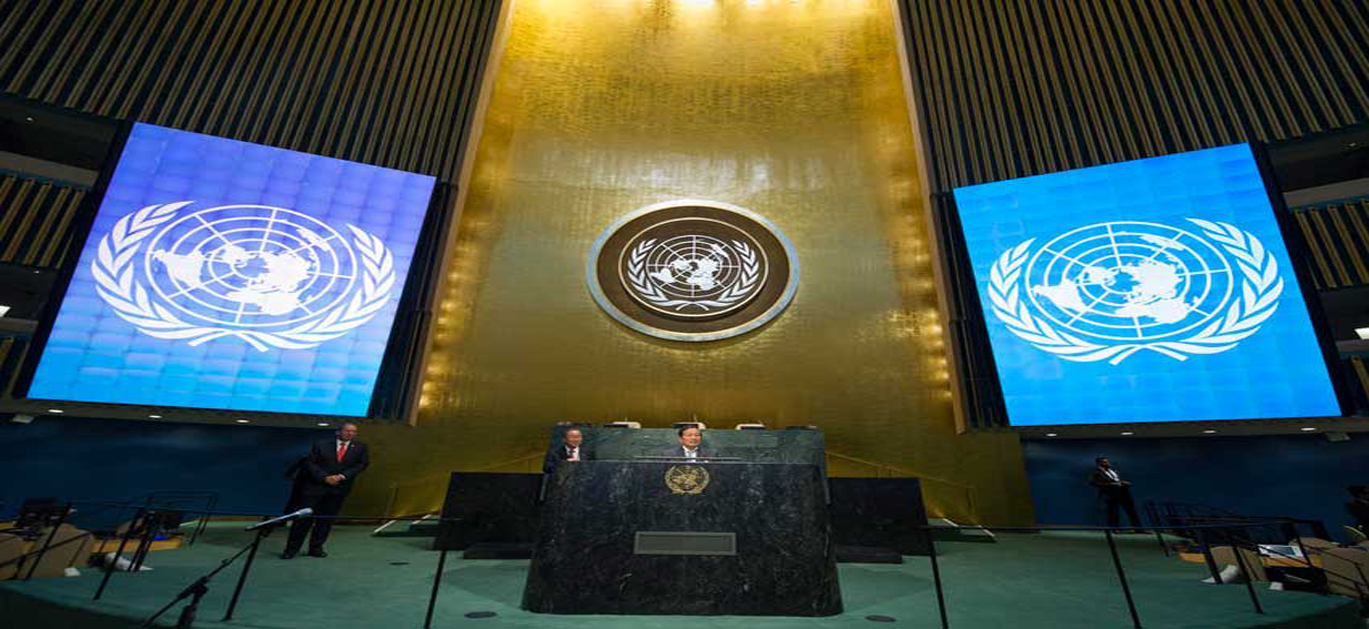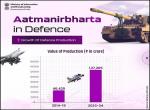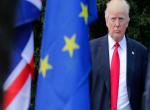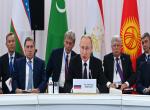“Making the United Nations relevant to all people: global leadership and shared responsibilities for peaceful, equitable and sustainable societies”, this will be the theme for the 73rd Session of the UN General Assembly (UNGA) from 15 September 2018 to 14 September 2019, as chosen by Foreign Minister Maria Espinosa of Ecuador, the newly elected President of the General Assembly (PGA).
India had hosted the PGA, a poet-politician who is only the fourth woman PGA (the first was India’s Vijayalakshmi Pandit in 1953) on an official visit in August 2018. The PGA had set out seven priorities under the theme for the Session in her public interaction at the Indian Council for World Affairs in New Delhi. These were: UN reforms (including of the Security Council); concluding the global compact on migration in December 2018; implementing the Addis Ababa Agenda for financing for development; climate action; employment; inequality and peace in the Middle East (including the rights of the Palestinian people).
Palestine
With reference to Palestine, the PGA will face an unusual and probably controversial situation from January 2019 onwards, when Palestine assumes the chairmanship of the Group of 77 (G77) developing countries. Comprising of 134 developing countries (and China) in the UNGA, the common position of the G77 is articulated by the chair at the beginning of each major meeting. Speakers from G77 countries speaking individually in the meeting invariably preface their remarks by endorsing the views expressed by the chair of the G77. Given the current policy of the United States and some of its partner countries in the UNGA on Palestine, this could result in unexpected polemics in the otherwise staid proceedings of the UNGA and its subsidiary bodies where the G77 speaks as a group.
Technically, Palestine is still an observer in the UNGA, and not a full member. However, objecting to Palestine taking the floor as chair of the G77 while not being a member of the UN can be countered by pointing to the steadily expanding practice of the European Union (EU), which is not a member of the UN. The EU not only participates in UN debates but also speaks ahead of many member-states since 2011, especially in the UN Security Council (UNSC).
Global Compact on Migration
The major outcome for the 73rd Session will be on migration, which has been discussed in the UNGA since September 2016. From April 2017, member-states in the UNGA have been negotiating a Global Compact for Safe, Orderly and Regular Migration. The negotiations, co-chaired by Mexico and Switzerland (representing the two sides on this issue) concluded in July 2018 with an outcome document after six rounds of inter-governmental negotiations (IGN). This non-legally binding document is rooted in the UN’s Agenda 2030 for Sustainable Development and will be adopted at an Inter-Governmental Conference to be held in Marrakech in Morocco on 10-11 December 2018.
Nelson Mandela Summit
This year marks the centenary of the birth of Nelson Mandela. On Monday 24 September 2018, a day before the opening of the General Debate, a high-level Nelson Mandela Summit meeting will be held to mark this centenary. India will have a more than ordinary interest in this epochal event given the close connections between the struggle for non-violent political change in India and South Africa. The removal of the apartheid regime in South Africa, which was initiated when India inscribed the need to remove racial discrimination in South Africa on the agenda of the UN General Assembly in 1946, is one of the UN’s greatest achievements. It took 48 years to fructify. The first multi-racial elections in South Africa were held in April 1994, and President Nelson Mandela led the South African delegation in September 1994 to the UN General Assembly.
The General Debate
The UNGA Session will witness its traditional General Debate from 25 September to 1 October 2018. This year, the Debate will witness a renewed jousting between the votaries of assertive sovereignty (led by President Trump of the United States) and the importance of international cooperation as the basis for multi-lateralism (led by Germany initially, now joined by France). Both President Putin of Russia and President Xi Jinping of China will not be addressing the General Debate this year (and neither will India’s Prime Minister Shri Narendra Modi). India will be represented in the General Debate by External Affairs Minister Smt. Sushma Swaraj, who is scheduled to speak in the UN General Assembly on Saturday 29 September 2018 in the afternoon.
The traditional first speaker in the General Debate on 25 September is Brazil, represented by President Michel Temer. Brazil was the first speaker in the General Debate in 1947 and has claimed the first slot on this basis. He will be followed by the United States, represented by President Donald Trump. The United States speaks second as the host country of the UN. This year, the opening morning session of the General Debate also features the presence of, among others, President Erdogan of Turkey, President Macron of France, the King of Jordan, the Emir of Qatar and President Rouhani of Iran. The likelihood of friction between delegations in the UNGA Hall during this session is high due to the open hostility between the United States (which is also the President of the UN Security Council for September 2018) and Iran.
Nuclear Disarmament
On 26 September 2018, the General Assembly will hold a one-day high level plenary to mark the International Day for the Total Elimination of Nuclear Weapons, in which the PGA Maria Espinosa of Ecuador and the UN Secretary General Antonio Guterres will participate. This event is a follow-up to the high-level meeting on nuclear disarmament held in the UN General Assembly on 26 September 2013. None of the nuclear-weapons states who are the five permanent members of the UN Security Council (China, France, the Russian Federation, the United Kingdom, the United States) are listed to speak in the General Debate on that day.
At the 2013 meeting, India had stated its belief “that the goal of nuclear disarmament can be achieved through a step-by-step process underwritten by a universal commitment and an agreed multilateral framework that is global and non-discriminatory”. India had endorsed proposals to begin negotiations on nuclear disarmament at the Conference on Disarmament in Geneva. India had also conveyed that she was ready to negotiate a global No-First-Use treaty.
Setting the context for India’s diplomatic initiative to become a member of all the four major non-proliferation regimes (Australia Group, Missile Technology Control Regime, Wassenaar Arrangement and Nuclear Suppliers Group), India’s position at the 2013 meeting was to see no contradiction between nuclear disarmament and non-proliferation. Since 2014, India has successfully negotiated entry into three of the four multilateral export regimes, with China remaining the only major obstacle to India’s membership of the Nuclear Suppliers Group now.
High Level Meetings on the margins of the General Debate
This year, the General Debate will be accompanied by two high-level meetings on the margins devoted to health issues. On 27 September there will be a special meeting in the Trusteeship Council Chamber of the UN on the fight to end tuberculosis. On 28 September there will be a comprehensive review in the Economic and Social Council Chamber of the UN on the current situation on steps to end non-communicable diseases.
Apart from the statements by world leaders at the General Debate, the UN Secretary General has announced that on 24 September he will convene a high-level meeting to take stock of the implementation of the Addis Ababa Agenda on financing for development (which is also one of the priorities of the PGA). On 25 September the UN Secretary General will convene a high-level meeting on Action for Peace Keeping, which will focus on the resources available for UN peace-keeping, and the need for more commitments from member-states, against the broader backdrop of reforms in UN peace-keeping operations.
South Asia in the UNGA General Debate
For India, the participation of countries from South Asia in the General Debate is always of interest for two reasons. First, depending on the level of participation, this gives an opportunity to hold bilateral meetings with such neighbours to follow up on the ongoing diplomatic interaction with these countries. President Sirisena of Sri Lanka is listed to speak in the afternoon of 25 September, President Ghani of Afghanistan on the morning of 26 September, Prime Minister Oli of Nepal and Prime Minister Imran Khan of Pakistan on the afternoon of 27 September, Prime Minister Sheikh Hasina of Bangladesh on the morning of 28 September, and the Minister from Maldives on the afternoon of 29 September (at same session as India’s External Affairs Minister). Due to its ongoing elections, Bhutan will be represented by a caretaker representative, who is currently listed as the last speaker of the General Debate on the morning of 1 October.
The second reason for India’s interest in South Asian participation in the General Debate is to see if these statements make any reference to India’s policies. The latter has been dominated in recent years by Pakistan’s attempts to raise the Kashmir issue to “internationalise” it, diverting attention from Pakistan’s commitments to deal with such issues bilaterally under the 1972 Shimla Agreement. This year, the controversial report on the human rights situation in Jammu and Kashmir by the outgoing UN High Commissioner for Human Rights, Zeid al-Hasan of Jordan may be expected to play a role in Pakistan’s statement. For India, apart from responding to any such statement by Pakistan - a continuing issue in the 73rd UNGA - will be on the substance of the report itself, which has been endorsed recently by the new UN High Commissioner for Human Rights Michelle Bachelet of Chile.
India’s approach in the 73rd Session
The 73rd Session of the UNGA provides India with another opportunity to implement some of the ideas and proposals mentioned by Prime Minister Modi in his maiden UNGA address in September 2014. This prioritisation may be seen against the background of swift implementation in a record span of 75 days and with a record 177 co-sponsors on 11 December 2014 by the UNGA of Prime Minister Modi’s proposal in September 2014 for the UNGA to declare an International Yoga Day.
Similarly, the Prime Minister’s call for “making 2015 a new watershed for a sustainable world” has also been implemented, with India proactively leading the negotiations for the unanimous adoption of the UN’s ambitious Agenda 2030 for Sustainable Development in September 2015. As Prime Minister Modi remarked on that occasion, “much of India’s development agenda is mirrored in the Sustainable Development Goals”.
Four Priorities
The four issues raised by Prime Minister Modi in 2014 which could be designated as India’s priorities during the 73rd Session are elaborated in the following paragraphs.
UNSC Reforms
Prime Minister Modi’s proposal in 2014 for reforming the UN Security Council by the 70th anniversary of the UN in 2015 resulted in a significant unanimous UNGA decision on 14 September 2015. The decision adopted a document submitted by 122 member-states as the basis for text-based negotiations through a UNGA resolution to amend the UN Charter and reform the UNSC. In 2015, after the adoption of Agenda 2030 for Sustainable Development, Prime Minister Modi had drawn the linkage between UNSC reforms and the implementation of Agenda 2030 by stating that the reform would help the UN, “including its Security Council” to “carry greater credibility and legitimacy”, making the UN “more representative and effective in achieving our goals”.
However, since 2016, the objective of reforming the UNSC has been stymied by a strong push-back led by China, which is not interested in sharing or diluting its current privileged role as a veto-wielding permanent member of the UNSC. This has successfully distracted many member-states and successive PGAs from the objective of tabling a UNGA resolution to reform the UNSC. For pro-reform countries like India, the 73rd UNGA provides an opportunity to re-galvanize support for tabling a UNGA resolution, either through the Inter-governmental Negotiations, or through a direct initiative by a group of 128 countries as co-sponsors of such a UNGA resolution. The issue of UNSC reforms is listed as agenda item 125 of the provisional agenda of the 73rd Session and would come up for discussion by early November 2018.
UN Peace-keepers Memorial Wall
During his participation in the Leaders’ Summit on Peace Keeping held in the UN in September 2015, Prime Minister Modi had said, “I would like to pay homage to the peace-keepers who have laid down their lives in defending the highest ideals of the United Nations. It would be most fitting if the proposed memorial wall to the fallen peace-keepers is created quickly. India stands ready to contribute, including financially, to this objective.” The proposal to construct the wall has already been endorsed by the UNGA. It would be appropriate for the 73rd Session of the UNGA to begin the process to construct the UN Peace Keepers Memorial. A decision by the 73rd Session on the modalities for this Memorial to be constructed before the 75th anniversary of the UN in 2020 would be a first step.
Counter-terrorism
In his address in 2014, Prime Minister Narendra Modi had also “urged” the UNGA to adopt the Comprehensive Convention on International Terrorism (CCIT). In December 2016, the 71st Session of the UNGA had mandated its 6th (Legal Affairs) Committee to set up a working group to finalise the CCIT during the 72nd Session of the UNGA. During the 72nd Session of the UNGA, the 6th Committee was chaired by Singapore. The working group’s attempt to finalise the draft CCIT was unsuccessful and will be carried over into the 73rd Session. India would need to be proactive to ensure that when the first meeting of the working group takes place on 3-4 October 2018, the momentum gathered during the 72nd UNGA Session is accelerated so that the draft of the CCIT can be finalized during the 73rd Session of the UNGA itself.
Technology for Development
During the 73rd Session, there will be a lot of expectation among member-states for India’s leadership on the use of technology to implement the Sustainable Development Goals, as agreed to in the July 2015 Addis Ababa Financing for Development Conference and in Agenda 2030 itself. As Prime Minister Modi stated in September 2015 when Agenda 2030 was adopted, it is India’s “hope that the Technology Facilitation Mechanism will turn technology and innovation into an effective instrument for global public good, not just private returns”. In this context, it would be appropriate for India to act in the UNGA to focus on technology for development issues when the UN’s High-Level Political Forum conducts its annual review of the implementation of Agenda 2030 in July 2019 in New York.
Conclusion
As the UN faces a challenging year ahead, it is worth recalling that in June 2019, the international community will commemorate the centenary of the Treaty of Versailles, which created the first modern multilateral organisation in the League of Nations. Many of the issues that led to the failure of the League have reared their heads again in recent years, including protectionist sentiments, disregard of their obligations by permanent members, and increasingly assertive acts pitting national sovereignty against the principle of international cooperation. India will need to be proactive in the UNGA’s 73rd Session to uphold the importance of “genuine international partnership” as “a practical reality”, as advocated by Prime Minister Modi in September 2014 to substantiate “India’s unwavering faith in multilateralism”.
(Ambassador Asoke Mukerji former Permanent Representative of India to the UN)
Image Source: https://www.unitar.org/event/full-catalog/73rd-united-nations-general-assembly-and-main-committees











Post new comment